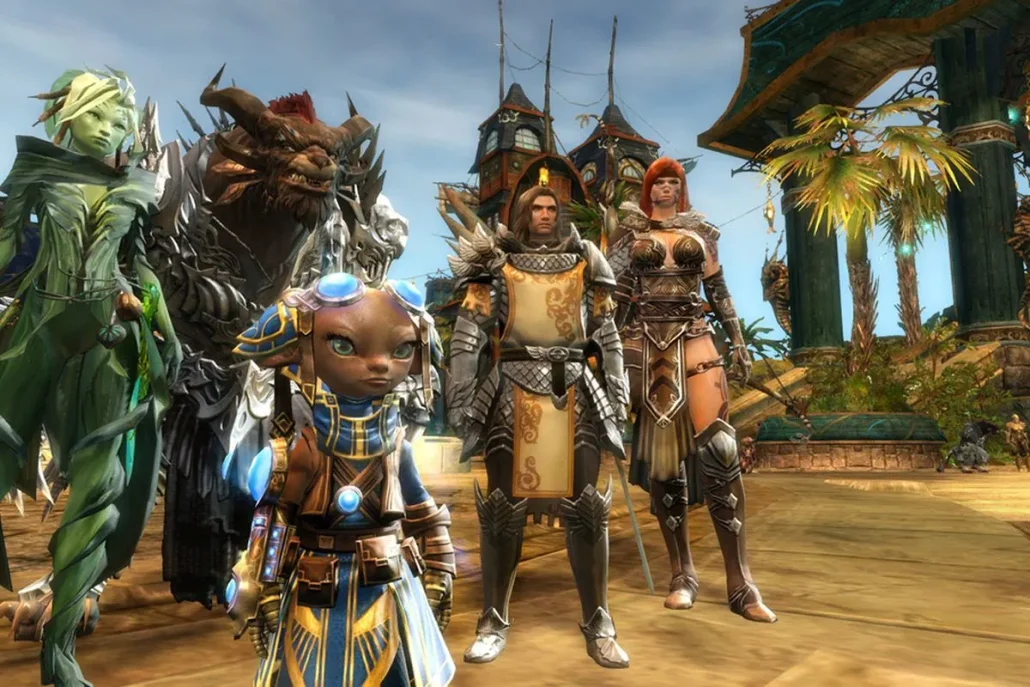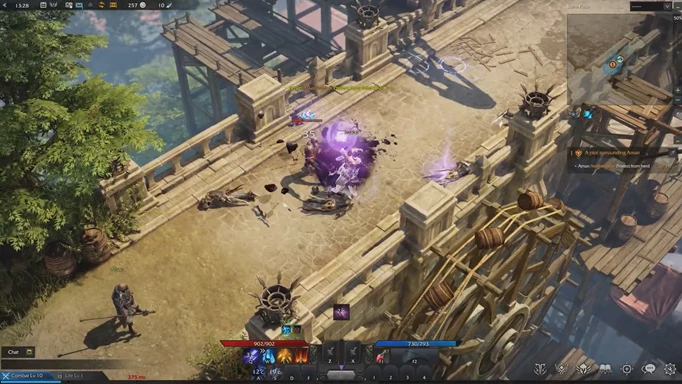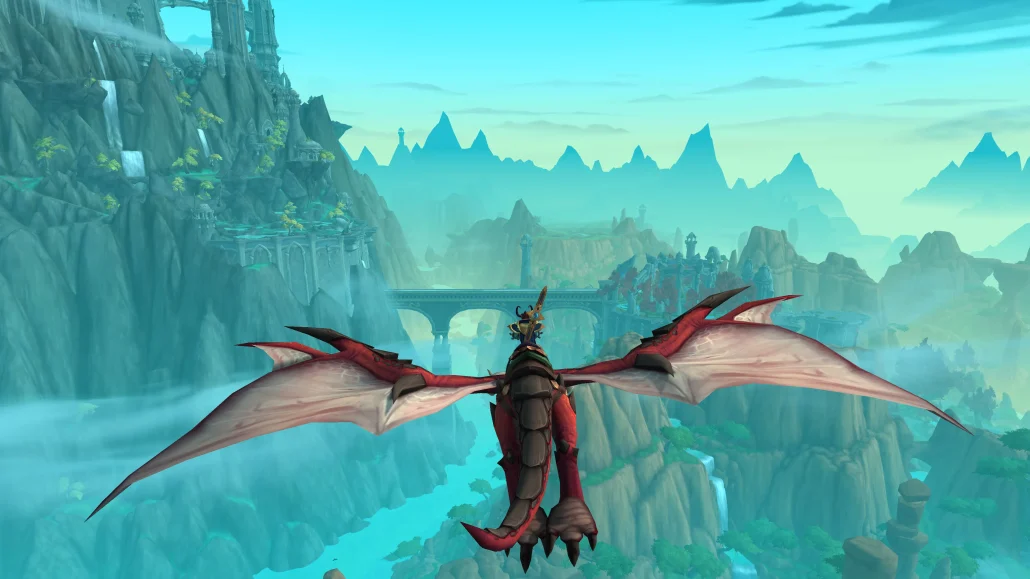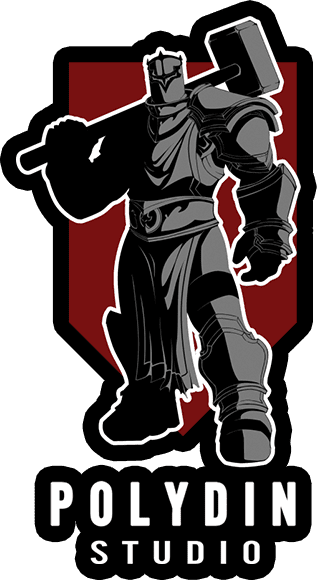MMORPGs, or Massively Multiplayer Online Role-Playing Games, have captured the imagination of gamers worldwide with their vast virtual worlds, intricate gameplay mechanics, and social interaction opportunities. In this comprehensive guide, we at Polydin Studio delve into the world of MMORPG game development, exploring what defines these immersive experiences, the key features that make them stand out, and the intricate process of creating them.
From understanding the various genres within the MMORPG landscape to examining the differences between MMORPGs and traditional RPGs, we embark on a journey to uncover the essentials of MMORPG game development. Additionally, we’ll explore the best game engines utilized for MMORPG development and conclude with insights into the future of this dynamic gaming genre. Join us as we unravel the complexities and possibilities of MMORPG game development.
What is a MMORPG Game?
A MMORPG, or Massively Multiplayer Online Role-Playing Game, is a type of video game that allows thousands of players to interact with one another in a virtual world simultaneously. In MMORPGs, players typically assume the role of a fictional character and embark on adventures, quests, and challenges within a persistent online universe. These games often feature expansive worlds filled with diverse environments, creatures, and characters, providing players with opportunities for exploration, combat, social interaction, and character progression. MMORPGs are known for their immersive gameplay experiences, extensive player customization options, and ongoing development and expansion through regular updates and content releases.


What are the Key Features of an MMORPG?
Key features of MMORPGs include:
- Persistent Online World: MMORPGs feature a vast and persistent virtual world that exists and evolves in real time, even when players log off. This world is shared by thousands of players simultaneously, creating a dynamic and immersive gaming experience.
- Character Customization: Players can create and customize their unique characters, choosing from various races, classes, abilities, and appearance options. This allows for personalization and role-playing, as players can tailor their characters to fit their preferred playstyle and aesthetic preferences.
- Quests and Storylines: MMORPGs offer a variety of quests, missions, and storylines for players to engage with. These quests often involve exploring the game world, completing tasks, defeating enemies, and interacting with non-player characters (NPCs). Quests provide opportunities for character progression, rewards, and narrative immersion.
- Social Interaction: Social interaction is a core aspect of MMORPGs, as players can communicate, collaborate, and compete with one another in various ways. This includes forming parties or guilds, participating in player-versus-player (PvP) combat, trading items, and engaging in in-game events and activities.
- Progression Systems: MMORPGs typically feature progression systems that allow players to develop and improve their characters over time. This may include leveling up, acquiring new skills and abilities, obtaining better gear and equipment, and unlocking access to new areas and content.
- Persistent Economy: MMORPGs often include a player-driven economy, where goods and services are bought, sold, and traded between players. This economy is supported by in-game currencies, auction houses, trading systems, and crafting professions, providing opportunities for economic gameplay and player-driven markets.
These features collectively contribute to the immersive and engaging nature of MMORPGs, fostering a sense of community, exploration, and adventure within the virtual worlds they inhabit.
How to Make an MMORPG Game: The Development Process
The process of MMORPG game development involves several key stages:
- Conceptualization: This stage involves defining the game’s concept, setting, and overall vision. Developers brainstorm ideas for the game’s world, story, characters, and gameplay mechanics. They may also conduct market research to identify trends and player preferences.
- Design: During the design phase, developers create detailed design documents outlining the game’s features, mechanics, and systems. This includes designing the game world, characters, quests, combat systems, progression systems, and social features. Game prototyping may also occur to test and refine gameplay ideas.
- Development: The development phase involves building the game according to the design specifications. This includes programming the game engine, creating 3D models and animations, designing user interfaces, implementing gameplay mechanics, and integrating network infrastructure for online play. Developers work collaboratively across disciplines, including programming, art, design, and audio.
- Testing and Iteration: PlayTesting is an iterative process that occurs throughout development. Developers conduct internal testing to identify bugs, glitches, and gameplay issues. Alpha and beta testing phases may involve recruiting external testers to provide feedback and identify areas for improvement. Feedback from testers is used to refine and polish the game.
- Launch: Once the game is deemed stable and polished, it is prepared for launch. This involves finalizing marketing materials, setting up servers, and preparing distribution platforms. The game is then released to the public, and developers monitor player feedback and address any post-launch issues that arise.
- Post-Launch Support: After launch, developers continue to support the game through regular updates, patches, and expansions. This may include adding new content, balancing gameplay, addressing player feedback, and fixing bugs and technical issues. Ongoing support helps to maintain player engagement and ensure the long-term success of the game.
Throughout MMORPG game development process, communication, collaboration, and flexibility are key factors in ensuring the success of the MMORPG project. Adapting to changes, listening to player feedback, and staying true to the game’s vision are essential for creating a compelling and immersive gaming experience.


Variety Of MMORPG Genres
MMORPGs encompass a wide range of genres, each offering unique gameplay experiences and settings tailored to different player preferences. Some of the most prominent genres within the MMORPG space include:
- Fantasy MMORPGs: Fantasy MMORPGs are among the most popular and iconic in the genre. Set in fantastical worlds filled with magic, mythical creatures, and epic quests, these games often draw inspiration from traditional fantasy literature and mythology. Players can embark on epic adventures, battle fierce monsters, and explore vast, immersive worlds.
- Sci-Fi MMORPGs: Sci-fi MMORPGs transport players to futuristic settings, often featuring advanced technology, space exploration, and interstellar conflicts. These games explore themes such as artificial intelligence, space colonization, and extraterrestrial life, offering players the chance to pilot spacecraft, engage in high-tech combat, and uncover the mysteries of the cosmos.
- Post-Apocalyptic MMORPGs: Post-apocalyptic MMORPGs present a bleak vision of the future, where civilization has collapsed and humanity struggles to survive in the aftermath of catastrophic events. Set in desolate wastelands or dystopian cities, these games challenge players to scavenge for resources, fend off hostile mutants or factions, and rebuild society from the ashes.
- Historical MMORPGs: Historical MMORPGs immerse players in real-world historical settings, allowing them to experience key moments in history or explore ancient civilizations. These games offer opportunities for role-playing, social interaction, and strategic gameplay, as players navigate the political, cultural, and military landscapes of the past.
- Horror MMORPGs: Horror MMORPGs deliver spine-chilling experiences set in dark, atmospheric worlds haunted by supernatural forces or plagued by undead horrors. Players must confront their fears as they unravel mysteries, solve puzzles, and battle terrifying creatures lurking in the shadows. These games often emphasize suspense, exploration, and cooperative gameplay.
- Sandpark MMORPGs: Sandpark MMORPGs blend elements of sandbox and theme park gameplay, offering players a mix of open-world exploration and structured content. Players can engage in a variety of activities, including questing, crafting, PvP combat, and player-driven economy, while also enjoying the freedom to shape the game world through their actions.
These are just a few examples of the diverse genres found within the MMORPG landscape, each catering to different player preferences and providing unique gameplay experiences. Whether players prefer epic fantasy adventures, futuristic space odysseys, or spine-tingling horror stories, there’s an MMORPG genre to suit every taste and playstyle.
What’s the Difference between MMORPG and RPG?
The main difference between MMORPGs (Massively Multiplayer Online Role-Playing Games) and traditional RPGs (Role-Playing Games) lies in their scope and multiplayer functionality:
- Scope and Scale: RPGs typically refer to single-player or small-group games where players assume the roles of characters in a fictional setting, embarking on quests, battling enemies, and progressing through a narrative-driven story. MMORPGs, on the other hand, are expansive online worlds where thousands of players can interact simultaneously in a persistent virtual environment. MMORPGs often feature larger game worlds, more complex gameplay systems, and ongoing content updates to support the continuous influx of players.
- Multiplayer Functionality: While both RPGs and MMORPGs involve role-playing and character progression, MMORPGs emphasize multiplayer interactions on a massive scale. In MMORPGs, players can collaborate with or compete against other players from around the world in real time, forming alliances, joining guilds, and participating in large-scale battles or events. This social aspect adds a dynamic and unpredictable element to the gameplay, as players must navigate the complexities of virtual societies and economies.
- Persistence and Community: Another key distinction is the persistence of the game world in MMORPGs. In MMORPGs, the game world continues to evolve and exist even when individual players log off, with changes made by one player affecting the experience of others. This persistence fosters a sense of community and shared experiences among players, who may form lasting friendships, rivalries, or alliances as they explore the virtual world together.
In summary, while both RPGs and MMORPGs share common elements such as role-playing and character progression, MMORPGs distinguish themselves through their expansive multiplayer environments, persistent game worlds, and emphasis on social interaction and community building.


Which Game Engines are Commonly Used for MMORPG Game Development?
Several game engines are commonly used for MMORPG game development due to their robust features, scalability, and support for multiplayer functionality. Some of the most popular game engines for MMORPG development include:
- Unity: Unity is a versatile game engine known for its flexibility and ease of use. It offers a wide range of tools and assets for creating MMORPGs, including networking solutions for multiplayer support. Unity’s extensive marketplace also provides additional assets, plugins, and resources that can streamline MMORPG development.
- Unreal Engine: Unreal Engine is renowned for its high-fidelity graphics, powerful rendering capabilities, and advanced tools for creating immersive gaming experiences. It provides built-in networking features and supports massive worlds with seamless streaming and dynamic content loading, making it well-suited for MMORPG development.
- HeroEngine: HeroEngine is specifically designed for MMORPG development, offering integrated tools for world-building, scripting, and content creation. It provides robust networking capabilities, collaborative editing features, and built-in support for persistent game worlds, making it a popular choice among developers working on large-scale online games.
- SpatialOS: SpatialOS is a cloud-based platform that enables developers to create and manage highly scalable virtual worlds for MMORPGs. It offers powerful networking infrastructure, dynamic server allocation, and support for massive concurrency, allowing developers to build ambitious online worlds with thousands of players.
- Photon: Photon is a multiplayer networking solution that provides low-latency communication and synchronization for real-time multiplayer games, including MMORPGs. It offers flexible deployment options, including cloud hosting and on-premises servers, and supports features like matchmaking, authoritative server logic, and real-time data streaming.
These game engines and networking solutions provide developers with the tools and infrastructure needed to create immersive and engaging MMORPG experiences, from world-building and gameplay mechanics to networking and server management. Developers can choose the platform that best suits their MMORPG game development requirements, technical expertise, and budget to bring their MMORPG vision to life.
Conclusion
In conclusion, MMORPG game development encompasses a diverse range of Video Game Genres and gameplay experiences, all unified by the core elements of massive online worlds, persistent player progression, and social interaction. The process of creating an MMORPG involves careful consideration of key features, choice of game engine, and implementation of networking solutions to support seamless multiplayer functionality. With the right tools and expertise, developers can harness the power of modern game engines and networking technologies to bring ambitious MMORPG projects to life, offering players immersive virtual worlds to explore, conquer, and inhabit together.


